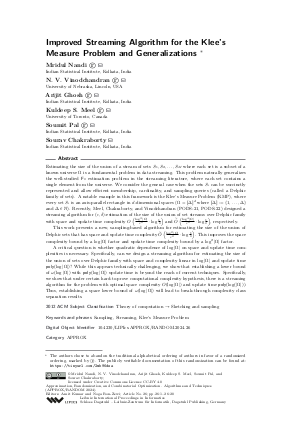LIPIcs.APPROX-RANDOM.2024.26.pdf
- Filesize: 0.88 MB
- 21 pages

 Creative Commons Attribution 4.0 International license
Creative Commons Attribution 4.0 International license







Feedback for Dagstuhl Publishing